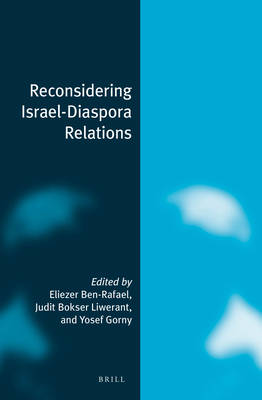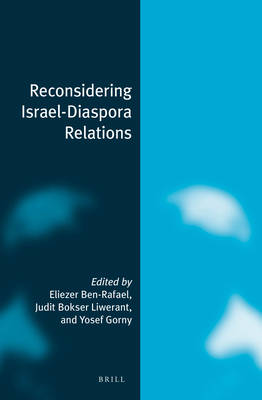
- Afhalen na 1 uur in een winkel met voorraad
- Gratis thuislevering in België vanaf € 30
- Ruim aanbod met 7 miljoen producten
- Afhalen na 1 uur in een winkel met voorraad
- Gratis thuislevering in België vanaf € 30
- Ruim aanbod met 7 miljoen producten
Zoeken
Reconsidering Israel-Diaspora Relations (Paperback)
€ 80,95
+ 161 punten
Omschrijving
In this era of globalization, Jewish diversity is marked more than ever by transnational expansion of competing movements and local influences on specific conditions. One factor that still makes Jewish communities one is the common reference to Israel. Today, however, differentiations and discrepancies in identification and behavior generate plurality and ambiguities about Israel-Diaspora relationships. Moreover the Judeophobia now rife in Europe and beyond as well as the spread of the Palestinian cause as a civil religion make Israel the world's "Jew among nations." This weighs heavily on community relations - despite Israel's active presence in the diaspora. In this context, the contributions to this volume focus on Jewish peoplehood, religiosity and ethnicity, gender and generation, Israelophobia and world Jewry, and debate the perspectives that are most pertinent to confront the question: how far is the Jewish Commonwealth (Klal Yisrael) still an important code of Jewry today?
Specificaties
Betrokkenen
- Uitgeverij:
Inhoud
- Aantal bladzijden:
- 502
- Taal:
- Engels
- Reeks:
- Reeksnummer:
- nr. 22
Eigenschappen
- Productcode (EAN):
- 9789004330917
- Verschijningsdatum:
- 28/07/2016
- Uitvoering:
- Paperback
- Formaat:
- Trade paperback (VS)
- Afmetingen:
- 155 mm x 234 mm
- Gewicht:
- 703 g

Alleen bij Standaard Boekhandel
+ 161 punten op je klantenkaart van Standaard Boekhandel
Beoordelingen
We publiceren alleen reviews die voldoen aan de voorwaarden voor reviews. Bekijk onze voorwaarden voor reviews.










